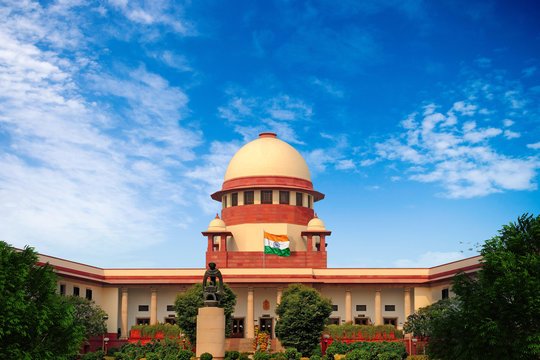Introduction
In a groundbreaking ruling, the Supreme Court of India, under the leadership of Chief Justice DY Chandrachud, has released extensive guidelines with the objective of expediting the resolution of criminal cases concerning Members of Parliament (MPs) and Members of Legislative Assemblies (MLAs).
This significant move, arising from a plea filed by advocate Ashwini Kumar Upadhyay, addresses the prompt handling of such cases and explores the possibility of imposing a lifetime ban on convicted politicians from contesting elections.
CJI-Led Bench’s Directions Supreme Court
The guidelines, emanating from Chief Justice Chandrachud’s bench, respond to Upadhyay’s plea filed in August 2016. The plea advocates for the expeditious resolution of cases involving lawmakers and proposes a lifetime ban for convicted politicians.
Central to the plea is Section 8 of the Representation of the People Act, 1951 (RP Act), which deals with the disqualification of legislators.
Understanding the RP Act
The RP Act, introduced by Dr. BR Ambedkar, serves as the legal framework governing elections to the Parliament and state legislatures. Of particular relevance is Section 8 of the RP Act, which outlines disqualifications for lawmakers.
Offenses such as promoting enmity, bribery, undue influence, hoarding, profiteering, and adulteration of food or drugs fall under its purview. Section 8(3) of the RP Act imposes a six-year ban on individuals convicted of offenses carrying a minimum two-year prison sentence.
Also Read | WHO Global Tuberculosis Report 2023: A Must-Read |
The Court’s Decision
Addressing the imperative for a swift resolution of cases against lawmakers, the Supreme Court’s guidelines include:
- High court chief justices are directed to initiate suo motu cases to oversee the swift resolution of pending cases.
- Special benches, led by chief justices or designated benches, for hearing these cases, with hearings scheduled at regular intervals if necessary.
- Prioritization of cases punishable by death or life imprisonment, as well as those with sentences of five years or more.
- Prohibition of trial courts from adjourning such cases without compelling reasons.
Ensuring Infrastructure and Transparency
To facilitate the expeditious handling of cases, the Supreme Court mandates:
- Principal district and session judges to ensure adequate infrastructure and technological support for designated courts.
- High courts create an independent tab on their websites, offering district-wise information on these cases, including their status.
Historical Context
This recent directive builds upon previous efforts by the Supreme Court to expedite criminal cases against lawmakers.
Significantly, the 2015 judgment in the case of “Public Interest Foundation vs. Union of India” mandated the expeditious completion of trials for incumbent legislators facing charges under Section 8 of the RP Act.
The ruling further emphasized conducting trials on a “day-to-day” basis if necessary.
Conclusion
The Supreme Court’s latest guidelines are a robust step towards ensuring the swift resolution of criminal cases against politicians, addressing a longstanding concern in India’s legal landscape.
By advocating for stringent timelines, specialized benches, and transparent reporting, the Court seeks to enhance the accountability of lawmakers and reinforce the integrity of the electoral process.
As these directives take effect, they hold the potential to reshape the landscape of political accountability in India.
